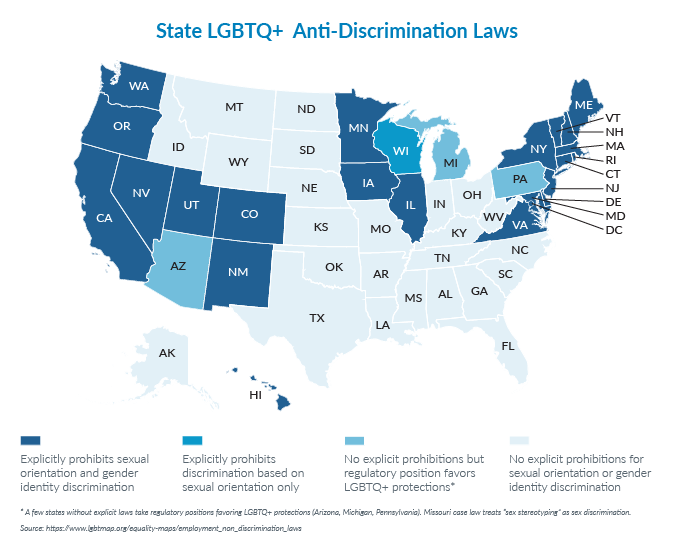-
Property & Casualty
Property & Casualty Overview

Property & Casualty
We offer a full range of reinsurance products and the expertise of our talented reinsurance team.
Expertise
Publication
Biometric Information Privacy – Statutes, Claims and Litigation [Update]
Publication
Inflation – What’s Next for the Insurance Industry and the Policyholders it Serves?
Publication
Human Activity Generates Carbon and Warms the Atmosphere. Is Human Ingenuity Part of the Solution?
Publication
Illinois Changes Stance on Construction Defect Claims – The Trend Continues
Publication
Generative Artificial Intelligence in Insurance – Four Aspects of the Current Debate
Publication
Battered Umbrella – A Market in Urgent Need of Fixing -
Life & Health
Life & Health Overview

Life & Health
We offer a full range of reinsurance products and the expertise of our talented reinsurance team.

Publication
Underwriting High Net Worth Foreign Nationals – Considerations for U.S. Life Insurance Companies
Publication
Group Term Life Rate & Risk Management – Results of 2023 U.S. Survey
Publication
Trend Spotting on the Accelerated Underwriting Journey
Publication
All in a Day’s Work – The Impact of Non-Medical Factors in Disability Claims U.S. Industry Events
U.S. Industry Events
Publication
Marginal Gains in the Medicare Supplement Market -
Knowledge Center
Knowledge Center Overview

Knowledge Center
Our global experts share their insights on insurance industry topics.
Trending Topics -
About Us
About Us OverviewCorporate Information

Meet Gen Re
Gen Re delivers reinsurance solutions to the Life & Health and Property & Casualty insurance industries.
- Careers Careers
What Does the U.S. Supreme Court’s Recent LGBTQ+ Ruling Mean for Businesses and EPLI?

August 04, 2020
Jill Tumney,
Mindy Pollack
Region: North America
English
The short answer is that the recent Bostock v. Clayton County, Georgia ruling protecting LBGTQ+ employees from sex discrimination will mean more claims and compliance for both employers and EPLI carriers as a whole.
But what businesses and insurers will be impacted the most?
The U.S. Supreme Court, in the trio of cases led by Bostock v. Clayton County, determined that “sex” discrimination protections in Title VII of the federal Civil Rights Act of 1964 apply to individuals based on sexual orientation and gender identity.1 In so ruling, the high court settled a conflict between the appellate circuits, some of which had reached different opinions or had no clear law on the question. As a result, employees and job applicants can now file claims for discrimination based on sexual orientation or gender identity in violation of the federal civil rights law in all parts of the country.
When more people can sue, it usually means more lawsuits. However, the impact is not equally distributed across businesses and insurers. The Bostock ruling interpreted one section of one federal law, so understanding the scope of that federal law and other employment laws is critical to understanding its actual impact on employers and insurers.
Two factors matter here. First, employer size will affect how discrimination laws and the Bostock ruling applies. Second, states also enforce their own discrimination laws, which may provide broader protection than granted by Bostock.
- Small vs. Large Employers - Title VII of the Civil Rights Act applies only to businesses with 15 or more employees, so businesses that meet the threshold operating in any part of the country can now be sued for LGBTQ+ discrimination - certainly an enormous and widespread impact. For the larger companies in this group, the effect may be muted because many have already adopted policies against LGBTQ+ discrimination. If their footprint includes a state with laws already protecting LGBTQ+ employees, chances are that they opted to comply on a national or multistate basis. Therefore, the brunt of the Bostock decision - in terms of compliance and claims - is likely to be felt by businesses in the middle of the size spectrum, starting at 15 employees.
What about smaller businesses? While not within the scope of the federal Civil Rights Act or Bostock, most are still not free of exposure to LGBTQ+ discrimination law. This is due to state civil rights laws,2 and the influence that Bostock is likely to exert on the interpretation and enforcement of civil rights laws in the remaining states. - Differing State Laws - Individual states have enacted and enforced their own versions of civil rights laws for businesses with employees within their borders. Roughly half of the states have added express sexual orientation and/or gender identity protections to their anti-discrimination laws, with Virginia being the latest. Therefore, many employees could already sue for LGBTQ+ discrimination. Also, some state civil rights laws include employers with fewer than 15 employees within their scope. A business with even one employee in Illinois, Wisconsin, Michigan, Iowa or Oregon, to name a few, could have been sued for LGBTQ+ discrimination without the benefit of the U.S. Supreme Court decision.

- The remaining half of the states have laws modeled on the federal Civil Rights Act but never amended them to add sexual orientation or gender identity as protected traits. However, that does not mean that small employers with employees in those states are shielded from lawsuits either. Many of these states have expressed an intent to follow the federal civil rights law and court decisions, which could include the Bostock interpretation of “sex” discrimination. Also, state judges may opt to follow the latest interpretation of the federal civil rights laws, particularly where they favor employees.
While there are always exceptions and open questions,3 the short answer holds true for most employers in most states. Insurers should anticipate an uptick in sex discrimination claims. Insurers with a certain Midwest (e.g., Illinois, Michigan and Iowa) book of business may feel the Bostock effect less than an insurer with a Southern book, where no states except Virginia enacted LGBTQ+ protections. We will just have to monitor claim activity and EEOC data to see what actually happens.
Risk Management Services Can Help
It’s time for employers everywhere to update their handbooks and practices to protect LGBTQ+ rights, and it’s time for insurers to help them with training, model policies and other risk management resources. Checking for LGBTQ+ anti-discrimination policies may become part of applications and the insurance underwriting process as it is for disability discrimination and sexual harassment.
Most EPLI policies (including the Gen Re EPLI product) offer complimentary risk management websites and hotlines for just this type of support. It’s time for businesses everywhere to make use of them.
Endnotes
- The other cases heard and decided under Bostock are Altitude Express Inc. v. Zarda and R.G. & G.R. Harris Funeral Homes Inc. v. EEOC. The 6-3 decision with dissenting opinions was issued June 15, 2020. The cases involve sexual orientation and gender identity; we use “LGBTQ+” in this blog for ease of reading.
- Twenty-four states currently prohibit discrimination based on sexual orientation or gender identity.
- After Bostock was decided, the U.S. Supreme Court released an opinion shielding religious organizations from discrimination claims made by employees who give religious instruction, explaining that these employees are considered “ministers of the faith” regardless of their titles or whether the employees practice such faith themselves. It appears that such employees could not pursue discrimination claims. Our Lady of Guadalupe School v. Morrissey-Berru, decided July 8, 2020 by a 7-2 vote.





